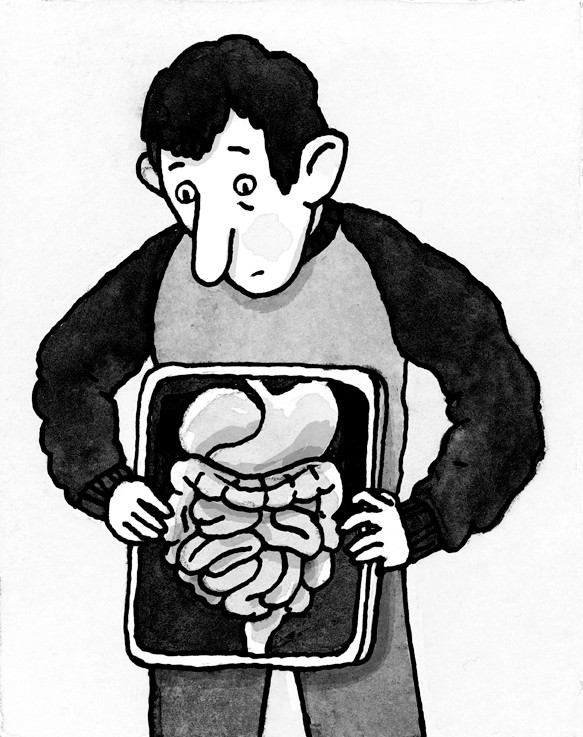Take care of your stomach — it’s close to your heart
Since our stomachs are close to our hearts, I asked Columbia gastroenterologists Charles Koczka and Shashi Singhal for a gastrointestinal update.
Dr. Neuberg: Gentlemen, it’s amazing that many peptic ulcers are caused by spiral bacteria called H pylori.
Dr. Singhal: Yes. H pylori is estimated to infect 30-to-40 percent of the U.S. population. Usually, infection is asymptomatic, but it’s the major cause of peptic ulcer disease and gastritis. Common symptoms are upper abdominal pain and burning, nausea, loss of appetite and, less often, bleeding. If untreated, it can increase the risk of gastric cancer.
Dr. Neuberg: What’s the impact of this discovery?
Dr. Singhal: It’s dramatic, since treatment with a combination of antibiotics for 10- to-14 days can eradicate the bacteria and greatly improves symptoms. Infection can be diagnosed with a simple stool or breath test, but some patients need endoscopy to look at the ulcers.
Dr. Neuberg: What about another major cause of ulcers and gastritis — non-steroidal anti-inflammatory drugs (NSAID) like ibuprofen and naproxen? These widely used drugs include most painkillers other than acetaminophen (Tylenol) and narcotics. How much should people worry about NSAID’s side effects, and what can they do?
Dr. Singhal: Regular NSAID users are five times more likely to develop peptic ulcers. Even occasional use can increase the risk, and problems increase with age. The best way to prevent ulcers is to avoid or limit NSAID use. People who need NSAID for pain can reduce ulcer risks by taking them with food, using the lowest effective dose, quitting smoking and avoiding or limiting alcohol. Consultation with a doctor is recommended and, if appropriate, we can prescribe medications to decrease stomach acid to protect the stomach lining.
Dr. Neuberg: Few people know that NSAIDs also raise blood pressure and can have other cardiac and renal side effects. For people with hypertension, heart and kidney disease, acetaminophen is much safer. Since you mentioned scoping, who should get a colonoscopy?






